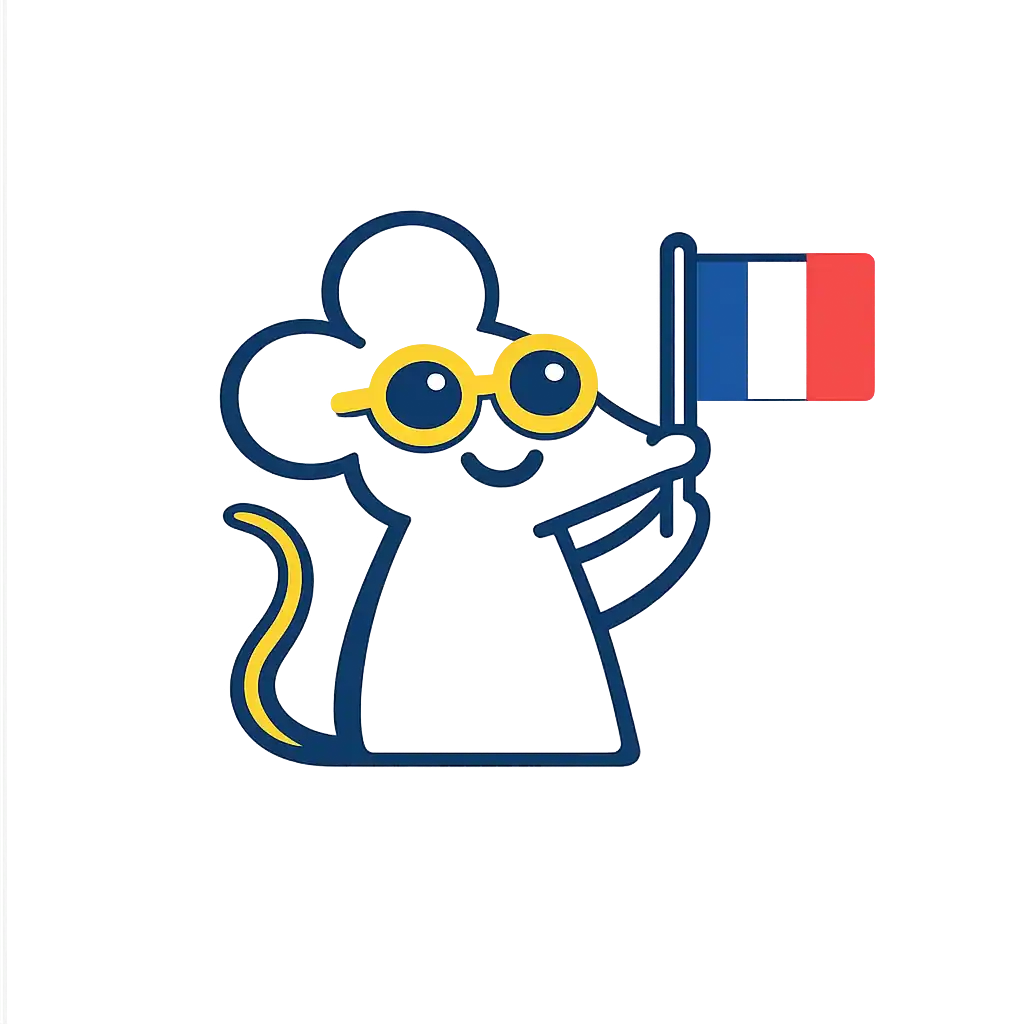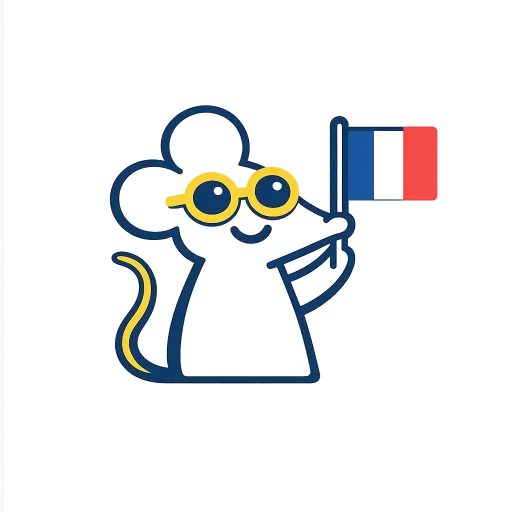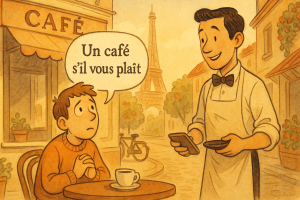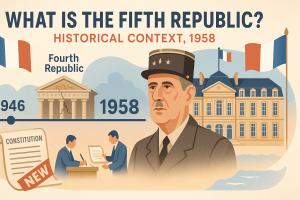Common French false friends that confuse English speakers — complete guide (A1–B1)
French false friends look like English words but mean something completely different, causing embarrassing mistakes. This A1–B1 guide explains the most confusing pairs with memory tricks, bilingual examples with IPA, and practical sentences so you can avoid common errors and speak with confidence.
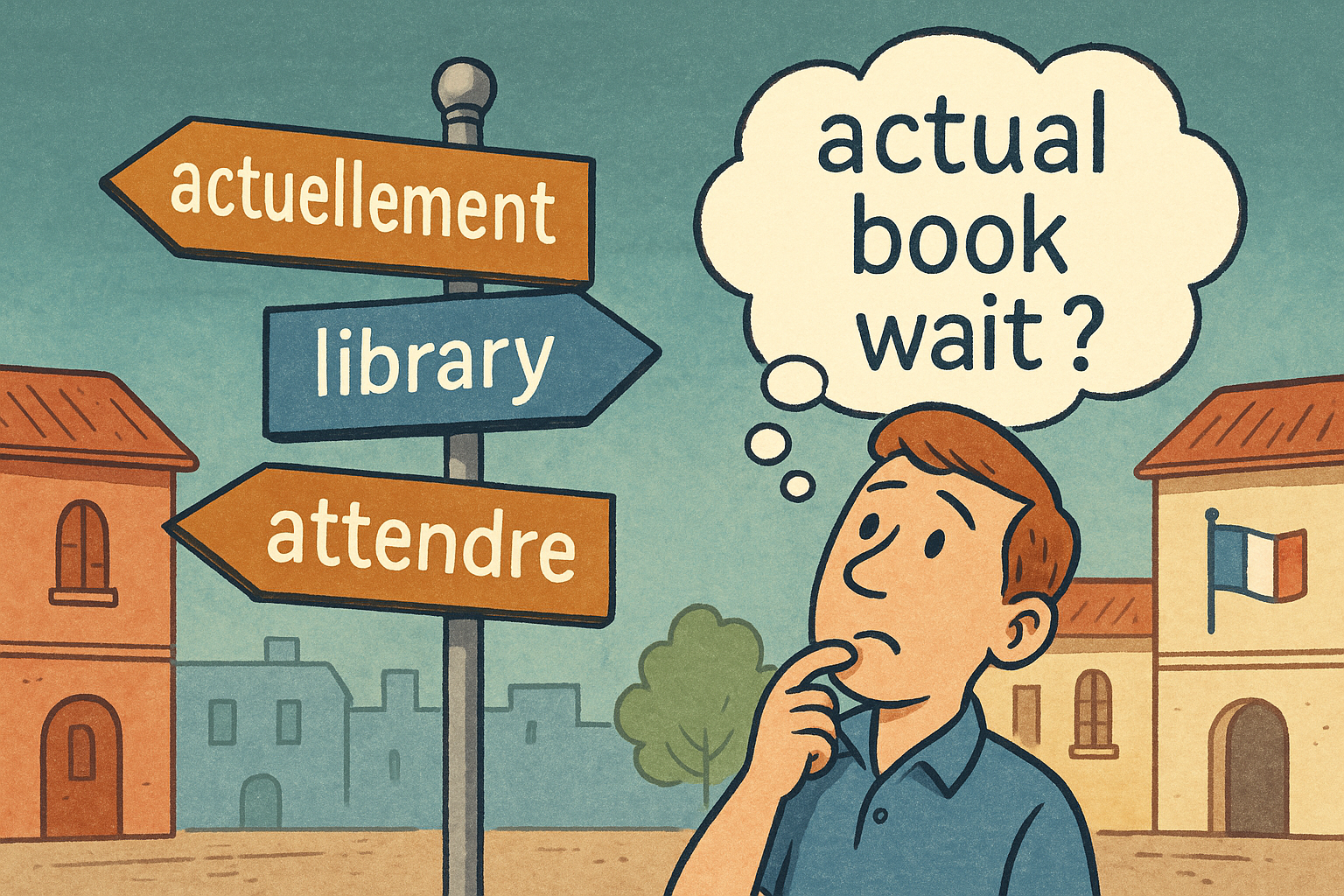
What are false friends and why do they matter?
False friends are words that look or sound similar in two languages but have completely different meanings. For English speakers learning French, these deceptive cognates create frequent misunderstandings because your brain automatically assumes the familiar-looking word carries its English meaning. This assumption leads to confusing statements or, worse, embarrassing situations.
Understanding false friends matters because they appear constantly in everyday conversation. Unlike obscure vocabulary you might rarely encounter, words like “actuellement,” “librairie,” and “sensible” surface in basic exchanges about time, shopping, and emotions. Mastering these tricky pairs prevents miscommunication while building confidence in your French accuracy.
The good news: once you recognize a false friend and practice the correct usage, the mistake rarely recurs. Your brain creates a strong corrective association that overrides the initial assumption. This guide focuses on the most common false friends English speakers encounter at A1–B1 levels, providing memory tricks and practical examples for each.
Critical false friends — highly confusing pairs
Actuellement ≠ Actually
⚠️ Common mistake: “Actuellement” does NOT mean “actually” (in fact). It means “currently” or “at the moment.”
🇫🇷 FR (WRONG) — Actuellement, je ne suis pas d’accord. ❌
🇫🇷 FR (RIGHT) — En fait, je ne suis pas d’accord. ✅ /ɑ̃ fɛ ʒə nə sɥi pa dakɔʁ/
🇺🇸 EN — Actually, I don’t agree.
🇫🇷 FR (RIGHT) — Actuellement, j’habite à Paris. ✅ /aktɥɛlmɑ̃ ʒabit a paʁi/
🇺🇸 EN — Currently, I live in Paris.
💡 Memory trick: “Actuellement” relates to “actual” in the sense of present/current events. Think “actual time = current time.”
Librairie ≠ Library
⚠️ Common mistake: “Librairie” means “bookstore” (where you BUY books), not “library” (where you BORROW books).
🇫🇷 FR — Je vais à la librairie acheter un roman. /ʒə vɛ a la libʁɛʁi aʃte œ̃ ʁɔmɑ̃/
🇺🇸 EN — I’m going to the bookstore to buy a novel.
🇫🇷 FR — La bibliothèque est fermée le dimanche. /la biblijɔtɛk ɛ fɛʁme lə dimɑ̃ʃ/
🇺🇸 EN — The library is closed on Sunday.
💡 Memory trick: “Librairie” = “librarian sells books.” “Bibliothèque” contains “biblio” (books) like “bibliography.”
Assister à ≠ To assist
⚠️ Common mistake: “Assister à” means “to attend” (an event), not “to assist/help.” To help someone is “aider.”
🇫🇷 FR — J’ai assisté à la réunion hier. /ʒe asiste a la ʁeynjɔ̃ jɛʁ/
🇺🇸 EN — I attended the meeting yesterday.
🇫🇷 FR — Je peux vous aider ? /ʒə pø vu zɛde/
🇺🇸 EN — Can I assist/help you?
💡 Memory trick: “Assister à” = be present at. “Aider” sounds like “aid” in English.
Préservatif ≠ Preservative
⚠️ Very embarrassing mistake: “Préservatif” means “condom,” not “preservative” (food additive = “conservateur”).
🇫🇷 FR — Ce produit ne contient pas de conservateurs. /sə pʁodɥi nə kɔ̃tjɛ̃ pa də kɔ̃sɛʁvatœʁ/
🇺🇸 EN — This product contains no preservatives.
💡 Memory trick: Never use “préservatif” when talking about food unless you want shocked faces. Always use “conservateur.”
Time and schedule false friends
Éventuellement ≠ Eventually
⚠️ Common mistake: “Éventuellement” means “possibly/perhaps,” not “eventually” (which is “finalement” or “à la fin”).
🇫🇷 FR — Éventuellement, je pourrais venir demain. /evɑ̃tɥɛlmɑ̃ ʒə puʁɛ vəniʁ dəmɛ̃/
🇺🇸 EN — Possibly, I could come tomorrow.
🇫🇷 FR — Finalement, il est arrivé à l’heure. /finalmɑ̃ il‿ɛt‿aʁive a lœʁ/
🇺🇸 EN — Eventually, he arrived on time.
Agenda ≠ Agenda (not exactly)
⚠️ Partial false friend: “Agenda” in French is a physical planner/diary, not a meeting agenda (which is “ordre du jour”).
🇫🇷 FR — J’ai noté le rendez-vous dans mon agenda. /ʒe nɔte lə ʁɑ̃devu dɑ̃ mɔ̃n‿aʒɛ̃da/
🇺🇸 EN — I wrote the appointment in my planner.
🇫🇷 FR — Quel est l’ordre du jour de la réunion ? /kɛl‿ɛ lɔʁdʁ dy ʒuʁ də la ʁeynjɔ̃/
🇺🇸 EN — What’s the meeting agenda?
Emotion and personality false friends
Sensible ≠ Sensible
⚠️ Common mistake: “Sensible” means “sensitive” (emotionally), not “sensible/practical” (which is “raisonnable” or “sensé”).
🇫🇷 FR — Elle est très sensible à la musique. /ɛl‿ɛ tʁɛ sɑ̃sibl a la myzik/
🇺🇸 EN — She is very sensitive to music.
🇫🇷 FR — C’est une décision raisonnable. /sɛt‿yn desisjɔ̃ ʁɛzɔnabl/
🇺🇸 EN — It’s a sensible decision.
Sympathique ≠ Sympathetic
⚠️ Common mistake: “Sympathique” means “nice/friendly,” not “sympathetic/compassionate” (which is “compatissant”).
🇫🇷 FR — Ton ami est très sympathique. /tɔ̃n‿ami ɛ tʁɛ sɛ̃patik/
🇺🇸 EN — Your friend is very nice/friendly.
🇫🇷 FR — Elle a été très compatissante. /ɛl a ete tʁɛ kɔ̃patisɑ̃t/
🇺🇸 EN — She was very sympathetic.
💡 Memory trick: “Sympathique” is often shortened to “sympa” in conversation, meaning nice/cool.
Places and locations false friends
College ≠ College
⚠️ Common mistake: “Collège” in French is middle school (ages 11-15), not college/university (which is “université” or “fac”).
🇫🇷 FR — Mon fils est au collège. /mɔ̃ fis‿ɛt‿o kɔlɛʒ/
🇺🇸 EN — My son is in middle school.
🇫🇷 FR — Elle étudie à l’université. /ɛl etydi a lynivɛʁsite/
🇺🇸 EN — She studies at college/university.
Cave ≠ Cave
⚠️ Common mistake: “Cave” means “cellar/basement,” not a natural cave (which is “grotte” or “caverne”).
🇫🇷 FR — Le vin est stocké dans la cave. /lə vɛ̃ ɛ stɔke dɑ̃ la kav/
🇺🇸 EN — The wine is stored in the cellar.
🇫🇷 FR — Nous avons visité une grotte préhistorique. /nu zavɔ̃ vizite yn ɡʁɔt pʁeistɔʁik/
🇺🇸 EN — We visited a prehistoric cave.
Action and behavior false friends
Demander ≠ To demand
⚠️ Common mistake: “Demander” simply means “to ask,” not “to demand” (which is “exiger”).
🇫🇷 FR — Je peux vous demander l’heure ? /ʒə pø vu dəmɑ̃de lœʁ/
🇺🇸 EN — Can I ask you the time?
🇫🇷 FR — Ils exigent une réponse immédiate. /il‿ɛɡziʒ yn ʁepɔ̃s imedjat/
🇺🇸 EN — They demand an immediate answer.
Rester ≠ To rest
⚠️ Common mistake: “Rester” means “to stay/remain,” not “to rest” (which is “se reposer”).
🇫🇷 FR — Je reste à la maison ce soir. /ʒə ʁɛst a la mɛzɔ̃ sə swaʁ/
🇺🇸 EN — I’m staying home tonight.
🇫🇷 FR — J’ai besoin de me reposer. /ʒe bəzwɛ̃ də mə ʁəpoze/
🇺🇸 EN — I need to rest.
Attendre ≠ To attend
⚠️ Common mistake: “Attendre” means “to wait,” not “to attend” (which is “assister à”).
🇫🇷 FR — J’attends le bus depuis dix minutes. /ʒatɑ̃ lə bys dəpɥi di minyt/
🇺🇸 EN — I’ve been waiting for the bus for ten minutes.
🇫🇷 FR — Je vais assister à la conférence. /ʒə vɛ asiste a la kɔ̃feʁɑ̃s/
🇺🇸 EN — I’m going to attend the conference.
Appearance and description false friends
Large ≠ Large
⚠️ Common mistake: “Large” means “wide,” not “large/big” (which is “grand” or “gros”).
🇫🇷 FR — La rue est très large. /la ʁy ɛ tʁɛ laʁʒ/
🇺🇸 EN — The street is very wide.
🇫🇷 FR — C’est une grande maison. /sɛt‿yn ɡʁɑ̃d mɛzɔ̃/
🇺🇸 EN — It’s a large house.
Ancien ≠ Ancient
⚠️ Common mistake: “Ancien” usually means “former/old,” not necessarily “ancient” (which is “antique”).
🇫🇷 FR — C’est mon ancien professeur. /sɛ mɔ̃n‿ɑ̃sjɛ̃ pʁɔfɛsœʁ/
🇺🇸 EN — He’s my former teacher.
🇫🇷 FR — Nous avons vu des ruines antiques. /nu zavɔ̃ vy de ʁɥin ɑ̃tik/
🇺🇸 EN — We saw ancient ruins.
Quick reference chart — most common false friends
| French Word | Looks Like (EN) | Actually Means (EN) | Correct French For |
|---|---|---|---|
| Actuellement | Actually | Currently | En fait |
| Librairie | Library | Bookstore | Bibliothèque |
| Assister à | To assist | To attend | Aider |
| Éventuellement | Eventually | Possibly | Finalement |
| Sensible | Sensible | Sensitive | Raisonnable |
| Sympathique | Sympathetic | Nice/Friendly | Compatissant |
| Demander | To demand | To ask | Exiger |
| Attendre | To attend | To wait | Assister à |
| Rester | To rest | To stay | Se reposer |
| Large | Large | Wide | Grand/Gros |
Practice sentences to master false friends
🇫🇷 FR — Actuellement, je travaille dans une librairie. /aktɥɛlmɑ̃ ʒə tʁavaj dɑ̃z‿yn libʁɛʁi/
🇺🇸 EN — Currently, I work in a bookstore.
🇫🇷 FR — En fait, j’attends mon ami devant la bibliothèque. /ɑ̃ fɛ ʒatɑ̃ mɔ̃n‿ami dəvɑ̃ la biblijɔtɛk/
🇺🇸 EN — Actually, I’m waiting for my friend in front of the library.
🇫🇷 FR — Elle est très sensible et sympathique. /ɛl‿ɛ tʁɛ sɑ̃sibl e sɛ̃patik/
🇺🇸 EN — She’s very sensitive and nice.
🇫🇷 FR — Je peux vous demander de m’aider ? /ʒə pø vu dəmɑ̃de də mɛde/
🇺🇸 EN — Can I ask you to help me?
Study glossary — false friends reference
| FR | IPA | EN (Correct) |
|---|---|---|
| Actuellement | /aktɥɛlmɑ̃/ | Currently |
| En fait | /ɑ̃ fɛ/ | Actually |
| Librairie | /libʁɛʁi/ | Bookstore |
| Bibliothèque | /biblijɔtɛk/ | Library |
| Assister à | /asiste a/ | To attend |
| Aider | /ɛde/ | To help/assist |
| Éventuellement | /evɑ̃tɥɛlmɑ̃/ | Possibly |
| Finalement | /finalmɑ̃/ | Eventually |
| Sensible | /sɑ̃sibl/ | Sensitive |
| Raisonnable | /ʁɛzɔnabl/ | Sensible |
| Sympathique | /sɛ̃patik/ | Nice/Friendly |
| Compatissant | /kɔ̃patisɑ̃/ | Sympathetic |
| Demander | /dəmɑ̃de/ | To ask |
| Exiger | /ɛɡziʒe/ | To demand |
| Attendre | /atɑ̃dʁ/ | To wait |
